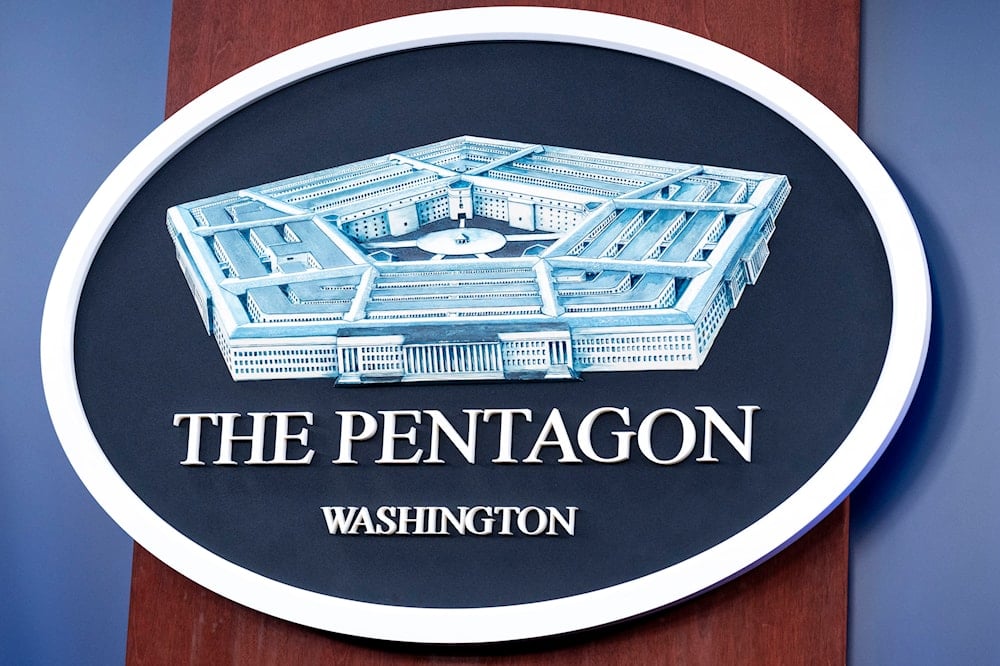Future of $240bln AUKUS deal in doubt as Pentagon launches review
The Pentagon is reviewing the AUKUS pact to align with Trump's "America First" agenda, casting doubt on a $240 billion defense agreement with the UK and Australia.
-

The Department of Defense logo is seen on the wall in the Press Briefing room at the Pentagon on October 29, 2024, in Washington (AP, File)
The Pentagon has initiated a review of the AUKUS defense pact, a strategic military alliance with Britain and Australia, to ensure it aligns with the Trump administration’s "America First" doctrine. The move places the future of the $240 billion agreement in doubt, particularly as Australia depends on the deal to overhaul its aging submarine fleet.
A Pentagon official stated the review aims to prioritize the readiness of US service members, ensure allies contribute fully to collective defense, and evaluate whether the defense industrial base is meeting national needs.
"The department is reviewing AUKUS as part of ensuring that this initiative of the previous administration is aligned with the president’s ‘America first’ agenda," the official said.
Signed in 2021 under the Biden administration, the AUKUS pact envisions Australia acquiring up to five Virginia-class nuclear-powered submarines from the US starting in 2032, with a jointly developed new submarine class expected in the 2040s. However, the current reassessment has sparked unease among allies, particularly as the pact was conceived as a bulwark against China’s growing military presence in the Indo-Pacific.
Sources revealed that Elbridge Colby, a known skeptic of AUKUS and former US undersecretary of defense, has been tasked with overseeing the review. Colby previously argued it "would be crazy" for the US to reduce its nuclear submarine numbers if a conflict over Taiwan were to erupt.
UK, Australia respond as uncertainty grows
A British spokesperson said, “AUKUS is a landmark security and defence partnership with two of our closest allies," adding that "it is one of the most strategically important partnerships in decades, supporting peace and security in the Indo-Pacific and Euro-Atlantic."
The UK acknowledged that it is natural for a new administration to review such agreements and affirmed its commitment to continued cooperation with both the US and Australia.
Australia, which has already paid the US approximately A$800 million (US$520 million) this year to support submarine production, is due to pay another A$2 billion (US$1.3 billion) by year’s end. Over the next 30 years, Australia has pledged a total of A$368 billion (US$239 billion) toward the submarine program.
Read next: Trump, Starmer strike 'breakthrough' US-UK trade deal
Trump unfamiliar with AUKUS
However, during UK Prime Minister Keir Starmer’s February visit to Washington, Trump appeared unfamiliar with the term AUKUS, reportedly responding, “What does that mean?” when asked about the pact.
The appointment of Elbridge Colby to lead the review has added a layer of uncertainty. Colby is known for his hawkish stance on China and has consistently emphasized prioritizing US military capabilities over multilateral commitments. His previous comments suggest skepticism about sharing sensitive nuclear technology with allies if it compromises US readiness in potential flashpoints such as Taiwan.
Meanwhile, US Defense Secretary Pete Hegseth recently urged Australia to raise its defense spending from 2% to 3.5% of GDP, and Australian Prime Minister Anthony Albanese has so far pledged 2.4%, asserting that Canberra will maintain autonomy over its defense policies.
With only six countries currently operating nuclear-powered submarines, the US, UK, Russia, China, France, and India, AUKUS would make Australia the seventh. The alliance not only covers submarine capabilities but also extends to cooperation on hypersonic weapons and advanced defense technologies.

 4 Min Read
4 Min Read










